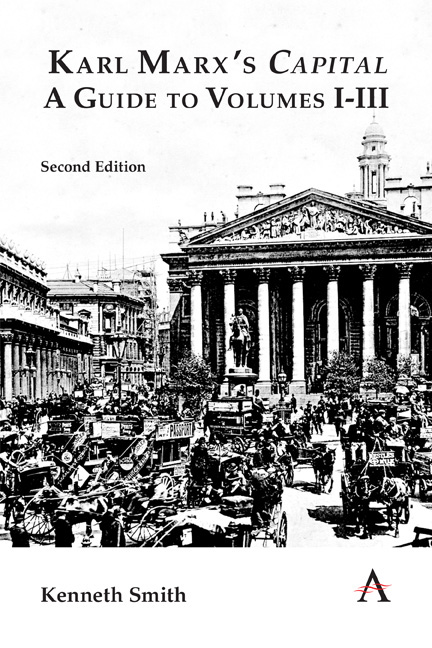Book contents
- Frontmatter
- Dedication
- Contents
- Preface to the Second Edition
- Introduction
- Part I The Development of the Capitalist Mode of Production
- Part II The Capitalist Mode of Production
- Part III The Underdevelopment of the Capitalist Mode of Production
- Part IV The Value Theory of Labour
- Conclusion to Part IV
- Conclusion
- Appendix: On Social Classes
- Notes
- Bibliography
- Index
Introduction to Part III
Published online by Cambridge University Press: 17 April 2021
- Frontmatter
- Dedication
- Contents
- Preface to the Second Edition
- Introduction
- Part I The Development of the Capitalist Mode of Production
- Part II The Capitalist Mode of Production
- Part III The Underdevelopment of the Capitalist Mode of Production
- Part IV The Value Theory of Labour
- Conclusion to Part IV
- Conclusion
- Appendix: On Social Classes
- Notes
- Bibliography
- Index
Summary
In Part II of this book, we examined just how difficult it is to compel capitalists to accumulate their capital on an extended scale, and therefore still less on a progressively extending scale, with simple reproduction being the normal or preferred state for the capitalist mode of production. Unless simple reproduction takes place there will be no extended or progressively extended production. The question we now have to consider is why it is that such a dramatic extension in the scale of the capitalist mode of production does in fact take place and, perhaps even more interestingly, what happens when no such expansion in the scale of the CMP occurs.
I have argued that there is no very good reason why accumulation should take place on anything other than the same unchanging scale except under the most exceptional circumstances (viz. (i) that a closed economy actually does obtain, (ii) that at least a part of the surplus product of the capitalist mode of production is produced in a form in which it cannot be consumed unproductively, and (iii) that the owners of surplus value, against their will as it were, are precipitated into accumulating part of this surplus value sooner than they would otherwise have done so on the basis of simple reproduction). I have also argued that, on the contrary, outside this set of conditions the owners of capital have every reason not to expand the scale of the process of production due to the risk that this entails of undermining what they have already. Of course, it may well be possible to substitute for the above set of conditions an alternative set which might also compel capitalist accumulation, and we will look at some of the most frequently mentioned alternative possible conditions in the final chapter of Part III of this study when we turn our attention to what Marx has to say on the subject of competition and the falling rate of profit.
- Type
- Chapter
- Information
- Karl Marx's 'Capital': A Guide to Volumes I-III , pp. 84 - 85Publisher: Anthem PressPrint publication year: 2021



